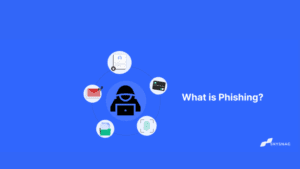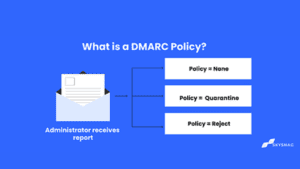Gmail.com’s New DMARC Policy Impacting Businesses

Essential DMARC Update for Gmail.com
In October 2023, a significant announcement from Google and Yahoo introduced new sender requirements for emails directed to their domains. These changes, effective from early 2024, primarily target bulk email senders.
Amidst this announcement, a critical detail has been overlooked. Gmail’s updated guidelines include a crucial point: the use of Gmail From: headers by non-Google platforms will trigger a DMARC quarantine enforcement policy, potentially directing such emails to spam folders.
Implications for Small Businesses Using Gmail Addresses
This policy shift significantly impacts small businesses using Gmail addresses (e.g., [email protected]) through third-party email services. Emails sent in this manner, from February 2024, are likely to be marked as spam.
Understanding Gmail From: Header Impersonation
Using a gmail.com address through non-Google platforms constitutes Gmail From: header impersonation. Such emails cannot pass DMARC authentication, as these third-party servers are not recognized in Gmail’s SPF record, nor can they DKIM sign using gmail.com. This leads to DMARC authentication failure, equating to domain impersonation.
Google’s Action on DMARC Policy
Previously, Gmail’s DMARC policy (p=none) did not influence the delivery of emails failing DMARC authentication. However, from February 1, 2024, this changes to “p=quarantine”, meaning emails failing DMARC checks, especially those impersonating Gmail From: headers, will be directed to spam folders.
Are You Affected?
Businesses using third-party email services with sender email “From: business-name@gmail.com” will be affected. This change means that emails sent from such addresses are more likely to land in spam folders across mail providers honoring DMARC policies.
What Should You Do?
For those impacted, the recommended course of action is to use a domain you own for business-related emails. This practice enhances email authenticity and engagement.
For assistance in setting up and transitioning to the new domain, in addition to ensuring DMARC compliance, Skysnag can facilitate.
Learn more about DMARC or start a free trial to avoid risks.






